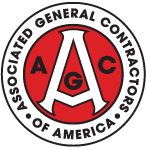While analysing the activities related to the construction project cost, four major key components come to the fore. They are mentioned hereunder:
Estimating Costs
A number of ways can be used to estimate varied costs. As regards estimation, the industry data can be looked upon for determining the amount of money spent by the competitors on analogous work/activities. Other ways of estimating include the hiring of in-house experts to assess the costs and then reassess the cost-records of parallel projects, and project planning and ascertaining costs for the individual activities and tasks.
One alternating approach to determining the construction project cost is by ascertaining the cost/unit that the customer is prepared to expend, and then establishing the diverse task allocations from there. It can be used for marketing, communications, training projects as well. Following an example, a $500 target per person can be established for a guidance/training program. From there, the overall budget can be determined by the assessor.
In the absence of all cost inclusions, it is practically impossible to undertake any project performance comparisons or to make any ROI decisions or cost/benefit analysis. In case the company fails to arrange a mechanism for supporting full-time employee cost estimation, the project managers can make use of spreadsheets and basic assumptions to engage in this task. Though it may not turn out to be completely accurate, yet it shall provide close results that could be used for comparative exercises.
Tracking Costs
On commencement of the project, the costs are required to be tracked as and when incurred. This takes account of vendor costs, parts and labor too, and may also comprise of support and overhead costs, if necessary. Organizations that more or less deal in project work, or are project-based usually have resourceful and refined methods for allocating and tracking costs, and several companies do not. However, this cannot be considered as a rationale for not tracking the construction project costs. Either vendors are then required to send the cost information prior to generating invoice, or the employees must be made to note down the time in a spreadsheet. The costs incurred on a project must be tracked with the accessible tools that are kept handy.
Controlling Costs
To control cost is crucial. One may come across a number of projects wherein budgets are ascertained but the costs aren’t controlled. Such projects either break the size of proposed budget ultimately or end up unsuccessful. If the costs relating to a project are not managed from the very start, they, by no means, end up in proportion to the originally proposed budget. Therefore, cost management should be given a higher weightage while assessing the project work.
Vendor spend i.e. the amount spent by vendor is rather simple and undemanding. A contract is established which outlines deliverables and requirements, and the vendor spend is then supposed to be unvarying, presuming no changes/alterations have been made to that range. Along with the vendor spend, costs of materials are also convincingly simple. If the requirements/scope of work varies, it results in higher costs.
Cost Data Management
After the completion of project, it becomes imperative to record/document the cost data as a component of closing practices. This data ought to be used for the forthcoming projects during planning and estimation. The organization shall reap better results, and prove more beneficial at cost control on the whole, if more projects are administered in this manner, and if cost management is given due attention.










